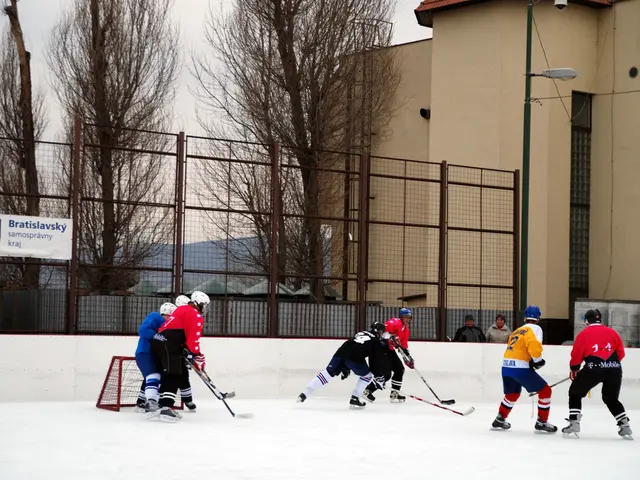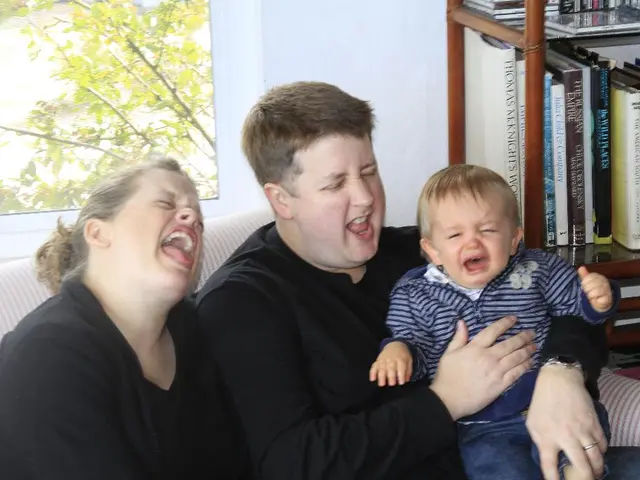Potentially Dangerous Aid Plan for Gaza Generates Concern Among Humanitarian Workers
International authorities voice concerns about the safety of a fresh humanitarian plan for Gaza, cautioning against potential risks.
In the troubled Gaza Strip, where access to humanitarian aid is limited, a new international aid plan has stirred debates. However, it's an old idea that hasn't gained acceptance from humanitarian workers, particularly when it comes to helping vulnerable groups.
The children's organization Unicef has raised concerns over an international foundation's proposed initiative to manage aid distribution in Gaza. Unicef spokesperson James Elder in Geneva expressed concern that the plan, which centers on delivering goods in select distribution centers, could lead to civilians being caught in crossfire during wartime. Elder warned that those unable to reach the distribution centers, such as disabled, sick, or injured individuals, will face increased risks, potentially causing more children to die or be injured.
The Gaza Humanitarian Foundation's Controversial Plan
A foundation based in Geneva, known as the Gaza Humanitarian Foundation (GHF), is planning to restructure aid distribution in the sealed coastal strip. According to GHF documents, 1.2 million Palestinians will be supplied via four centers, with the aim of eventually reaching the area's total population of around two million.
Shared Goals: Foundation and Israel, a Contentious Alliance
Sources within the United Nations have claimed that the GHF's plans are strikingly similar to previously rejected plans by the Israeli government. UN spokesperson Jens Laerke confirmed this, stating that the plan does not meet minimum requirements for humanitarian work.
Israel has reportedly blocked aid deliveries to Gaza for over two months. The Israeli military accuses the Palestinian terrorist organization Hamas of exploiting aid goods for personal gain, using the proceeds to finance fighters and weapons.
Background: Humanitarian Crisis in Gaza
The ongoing humanitarian crisis in Gaza has placed numerous vulnerable groups at risk, including children. The UN Committee on the Elimination of Racial Discrimination (CERD) has expressed concern over the halt to food aid, which has led to the depletion of all food reserves in Gaza[1]. Furthermore, indiscriminate bombardments and destruction of water and electricity infrastructure have worsened the crisis[1].
Organizations like UNRWA are providing psychosocial support services to help manage the psychological impact of the crisis on children and other vulnerable groups[2]. The humanitarian crisis has also exposed women and girls to risks of gender-based violence[3].
Addressing these concerns and providing immediate access to humanitarian aid are crucial steps to alleviate the plight of the people in Gaza and ensure their long-term well-being.
[1] ntv.de, toh/dpa[2] World Food Programme[3] UNRWA[4] CERD[5] Institute of International Law and Stats, Inc. (IntLawStats)
- The employment policy of the Gaza Humanitarian Foundation (GHF) regarding aid distribution in Gaza is a subject of concern, as it closely resembles previously rejected employment policies by the Israeli government, according to UN sources.
- Unicef spokesperson James Elder has expressed reservations about the GHF's plan to manage aid distribution in Gaza, fearing it may pose risks to vulnerable groups, such as the disabled, sick, or injured, who may not be able to reach the designated distribution centers during wartime.
- In the context of the troubled Gaza Strip, where access to humanitarian aid is limited and the ongoing humanitarian crisis has significant implications for various communities, it is crucial to implement a comprehensive employment policy that prioritizes the safety and well-being of all residents.
- In the face of controversial aid distribution plans and the prolonged humanitarian crisis in Gaza, it is vital for humanitarian organizations to actively communicate their concerns and advocate for a community policy that puts the needs of the most vulnerable individuals first.








